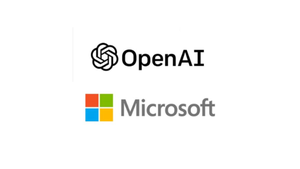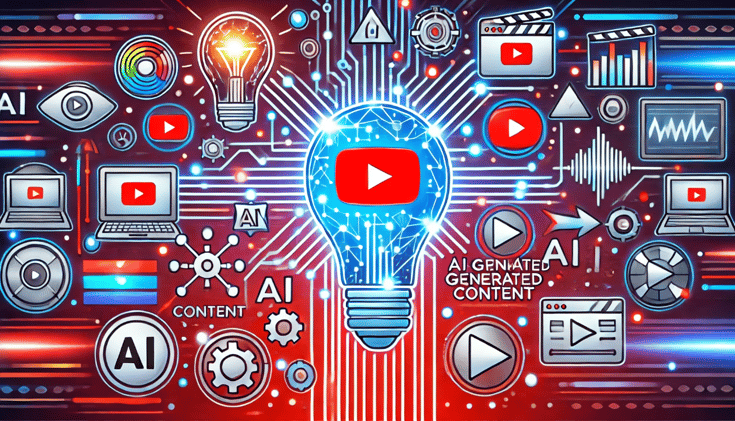Abstract
AI-generated content presents both opportunities and challenges for society, including misinformation, privacy and security concerns, and ethical dilemmas. Addressing these challenges is crucial to harness the potential of AI while preserving our core values and protecting the public interest.
Policymakers, technology companies, and content creators should collaborate to establish guidelines and best practices for AI-generated content. Education and awareness play a vital role in navigating these challenges.
Introduction
The rapid advancements in artificial intelligence (AI) have led to an influx of AI-generated websites and personas, raising important questions about their potential consequences and the challenges they pose for society.
A recent article by Jason Khoo titled "The Growing Impact of AI-Generated Content: Why Link Building is More Crucial Than Ever" delves into the implications of AI-generated content for the digital marketing and SEO industry. However, there are broader societal issues that need to be addressed as we grapple with the increasing presence of AI-generated content in our lives.
By fostering digital literacy and critical thinking skills, individuals will be better equipped to recognize and evaluate AI-generated content, helping to maintain trust in information sources and protect privacy and security.
Dr. Kevin Washington
Implications
Three significant societal problems stem from the widespread use of AI-generated content:
Misinformation and Erosion of Trust
The proliferation of AI-generated content has the potential to exacerbate misinformation and fake news. As AI-generated articles and websites become more difficult to distinguish from human-generated content, it becomes increasingly challenging to assess the credibility of information online.
This difficulty erodes public trust in information sources and could lead to a society where facts and truth are increasingly elusive. The ease with which AI-generated content can be created and disseminated makes it an attractive tool for spreading misinformation, propaganda, or biased agendas.
Privacy and Security Concerns
AI-generated personas may compromise personal privacy and security. For instance, AI-generated social media accounts may impersonate real people or create entirely fictional personas. These accounts can be used to spread misinformation, manipulate public opinion, or even engage in cyberbullying and harassment.
Furthermore, the use of AI-generated personas in phishing scams and other cybercrimes could put individuals and organizations at risk of financial or data loss. As AI-generated content becomes more sophisticated, it is essential to develop effective strategies for detecting and preventing these types of threats.
Ethical and Moral Dilemmas
The increasing use of AI-generated content raises essential ethical and moral questions. Should there be limits to the use of AI-generated content, and who should be responsible for establishing these boundaries? How do we ensure that AI-generated content is used ethically and does not undermine human creativity and originality?
As AI-generated content becomes more sophisticated, we need to confront these questions head-on to ensure that we preserve the core values of our society. This requires a multidisciplinary approach, involving experts from various fields, including ethics, law, philosophy, and technology.
Discussion
It is crucial to address these societal problems proactively. Policymakers, technology companies, and content creators should collaborate to establish guidelines and best practices for AI-generated content. This collaboration can help foster responsible use of AI in content creation while minimizing potential negative impacts on society.
Education and awareness are also essential tools in navigating the challenges posed by AI-generated content. By fostering digital literacy and critical thinking skills, individuals will be better equipped to recognize and evaluate AI-generated content, helping to maintain trust in information sources and protect privacy and security.
Conclusion
AI-generated content presents both opportunities and challenges for society. By acknowledging and addressing these challenges, we can harness the potential of AI to enhance our digital lives while preserving our core values and protecting the public interest.
Key Takeaways
- AI-generated content poses significant societal problems, including misinformation, privacy and security concerns, and ethical dilemmas.
- Policymakers, technology companies, and content creators should collaborate to establish guidelines and best practices for AI-generated content.
- Education and awareness are essential tools in navigating the challenges posed by AI-generated content.
- By fostering digital literacy and critical thinking skills, individuals will be better equipped to recognize and evaluate AI-generated content.
Resources
- How to Detect AI-Generated Content: A comprehensive guide on detecting AI-generated content, including tips for identifying suspicious websites and social media accounts. (https://www.techtarget.com/searchenterpriseai/feature/How-to-detect-AI-generated-content)
- AI-Generated Content: The New Floor: An article exploring the impact of AI-generated content on the digital marketing and SEO industry, including insights from experts in the field. (https://sparktoro.com/blog/ai-generated-content-is-the-new-floor/)
- AI-Generated Content: Pros and Cons: A comprehensive guide on the benefits and drawbacks of AI-generated content, including expert opinions on its potential impact on society. (https://originality.ai/ai-generated-content-pros-and-cons/)




